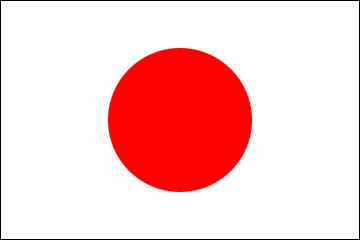At the Guest Lecture on “Japan-China Relations in an Era of US-China Competition”
2019/10/2
Ambassador's Speech
Dr. Harinda Vidanage, Director, Bandaranayke Center for International Studies,
Dr. Akio Takahara, Professor of Contemporary Chinese Politics at the Graduate Schools for Law and Politics, the University of Tokyo,
(Excellencies,)
Prominent Professors and Scholars,
Distinguished Guests,
Ladies and Gentlemen,
Good evening.
First of all, let me warmly welcome you all to this evening’s guest lecture. I am extremely delighted to organize this program with Bandaranaike Center for International Studies (BCIS) jointly once again, with whom the Embassy of Japan has been working closely over many years to promote academic interactions between Sri Lanka and Japan. Taking this auspicious opportunity, I would like to express my sincere appreciation to Dr. Harinda Vidanage and his team for extending their cooperation unstintingly, while sharing our common goal of deeping bilateral relationship in a scholarly domain most proactively.
Ladies and Gentlemen,
This evening, I am greatly honored and pleased to introduce Dr. Akio Takahara as our guest speaker to deliver lecture on one of the most compelling topics of our times –“Japan-China Relations in an Era of US-China Competition”-. Dr. Takahara here is as a leading scholar on contemporary Chinese politics and East Asia with a great body of publications in the relevant fields and I am certain that he will illuminate us on this most pressing subject. I had the pleasure to become acquainted with Dr. Takahara when we both worked together at the Embassy of Japan in Beijing as close colleagues in the late 90’s, more than 20 years ago. Dr. Takahara, who already had distinguished academic career in the field of China study, helped our Embassy with his scholarly insight. I was there First Secretary in the political section of the Embassy and had the privilege to learn a lot from Dr. Takahara.
Dr. Takahara, thereafter, further pursued his academic career and earned steadfast reputation to achieve the academic pinnacle of teaching at the most prestigious university in Japan. Currently, Dr. Takahara is a Professor of Contemporary Chinese Politics at the Graduate Schools for Law and Politics at the University of Tokyo, while concurrently holding the position as the Dean of the Graduate School of Public Policy at the same university. He also serves as a Senior Fellow of the Tokyo Foundation for Policy Research, Senior Adjunct Fellow of the Japan Institute of International Affairs, and Distinguished Research Fellow of the Japan Forum on International Relations. With his wide-ranging professional works and profound insights, I am more than confident that today’s lecture will help you have a useful perspective to understand the Japan-China relationship.
Ladies and Gentlemen,
China is our close neighbor across the East China Sea and the Japan-China relationship is one of the most important bilateral relationships for Japan. Last year 2018 marked the 40th anniversary of the conclusion of the Treaty of Peace and Friendship between Japan and China, one of the landmark documents in Japan-China relations. Through frequent high-level dialogues in the year, including reciprocal visits by Prime Minister Abe and Premier Li Keqiang, Japan-China relations returned to their normal track. While there are bilateral issues to address, including the situation surrounding the East China Sea, Japan and China will further develop bilateral relations and share a major responsibility for the peace and stability of the region and the international community.
Let me take this opportunity to briefly touch upon a relevant subject, that is, “Free and Open Indo-Pacific (FOIP)”, a vision that the Government of Japan actively promotes recently. The root of FOIP is embedded deeply in the firm belief that the Indo-Pacific Oceans should be “Global Commons,” or “international public goods,” which would benefit all the countries, littoral and non-littoral alike. It identifies three main pillars or principles to achieve this end, namely: (1) strengthening the rule of law, especially freedom of navigation; (2) enhancing connectivity through “quality infrastructure”, and; (3) maintaining maritime peace and security. Sri Lanka, which is located at the heart of the Indian Ocean, has outstanding records in playing a prominent role in promoting peace and stability of the Indian Ocean, and inarguably, one of our most valued partners in realizing the far-reaching vision of Free and Open Indo-Pacific. While some argue that there is “strategic” or “geopolitical” competition in the Indian Ocean, I would like to stress that the vision of FOIP is an inclusive concept open to all countries that share its basic principles. I hope that Dr. Takahara will shed scholarly light on this imposing subject.
Last but not least, I would like to reiterate my sincere appreciation to Dr. Harinda Vidanage and his team, as well as my old colleague Dr. Takahara for putting their efforts together and making this important lecture come true in a timely manner, and on this note and my very best wishes for the fruitful discussion this evening, I would like to conclude my opening remarks.
Thank you very much.
